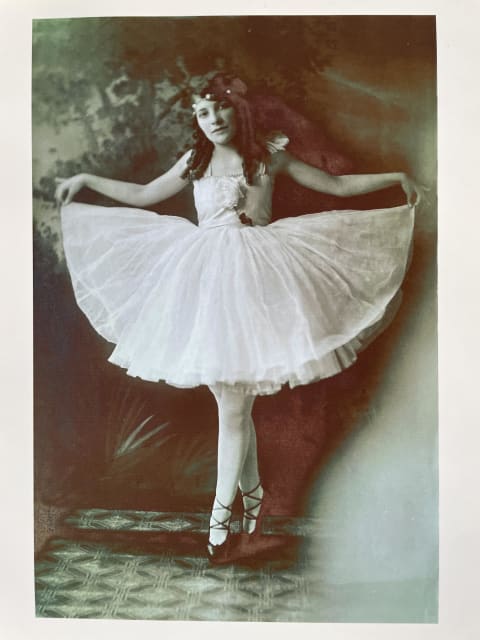Advertisement
My Grandma Lived To Be 103 Using These Simple Health Principles


More of us than ever before are living to 100, but how many of us can say our lives touched parts of three centuries?
Improbably, my grandmother could. Born in 1899 in Brooklyn, N.Y., to a Sicilian immigrant couple, Marie Mercurio Sansone was just shy of 104 when she left us in 2003. And over the arc of her impressively long life, she taught me lessons not only about longevity but vitality.

Grandma's story, which helped inspire my new book about a coming surge in the number of centenarians, personifies what it's like to be a centenarian in the new millennium. Sure, she was blessed with great genes, but she worked hard at the things she could control in ways that positioned her to not only achieve longevity but truly enjoy it.
Here are three of my most important takeaways from her lived experience as someone who managed to match much of her long life span with a vibrant health span: the gold standard of aging to which we all aspire.
Determination
Grandma had grit. It wasn’t easy being a first-generation American in the early 1900s, especially for a young woman, but she set goals and didn’t let anything get in the way of her achieving them.
A born performer, by her early 20s, she was already an accomplished toe dancer in New York City. Later, she played piano for the silent movies—something that always makes my knees go a little weak when I think about it.
A sense of purpose adds years to our lives. Researchers in Portugal1 studied 121 centenarians to get a better idea of whether life at 100 is worth living. Only a third indicated they didn’t want to live longer, and a common explanation beyond poor health was a lack of purpose in life.
Those content to continue aging into their 100s, by contrast, found meaning and satisfaction in celebrating family achievements such as seeing a grandchild graduate from university or marry, or meeting a new great-grandchild.
Resilience
Grandma had bounce. She repeatedly rallied to dig deep and overcome despair after losing a young child; mourning the death of another who died in his prime; and outliving her husband by nearly four decades.
In the 1970s, after crippling rheumatoid arthritis made it impossible for her to play the piano, she cured herself by eating only natural foods—decades before that became popular. In her 90s at a family wedding, she busted moves on the dance floor that some of us in our 30s and 40s had difficulty matching.
Experts in longevity say emotional resilience is an enigmatic X factor that plays a key, if not fully understood, role in how long we live. It’s helped Holocaust survivors go on to reclaim their lives, and those who’ve overcome earthquakes or even physical and emotional abuse to rebuild theirs.
Laura Carstensen, Ph.D., director of the Stanford Center on Longevity, led a study that examined the well-being of older people2 during the height of the COVID-19 pandemic. The scourge, of course, exacted a terrible toll on the elderly—far and away its most frequent and numerous victims.
Even so, “we found that older people reported fewer negative emotions in their lives, and more positive emotions, than younger people did,” Carstensen told NPR’s On Point.
Optimism
Grandma had hope. She greeted each day with a smile and infectious good cheer, thankful to be alive. One of the things I’ll remember most about her is the twinkle in her eye. She had plenty of reasons to be embittered, but chose instead to embrace love and laughter—and always look on the bright side.
Researchers at Boston University’s School of Medicine, examining how optimism affects our health3 by following 233 older men over a period of 14 years, found it appears to promote emotional well-being by helping us handle daily stress more constructively.
“Optimism may promote good health as people age,” said Lewina Lee, Ph.D., a clinical psychologist who coauthored the study.
Lee also participated in a separate study of a racially and socioeconomically diverse group of nearly 160,000 American women aged 50 to 79. It found those who were least pessimistic were 10% more likely to live beyond 904.
More than mere wishful thinking, positive beliefs around aging have the potential to extend our lives by as much as 7.5 years5, according to research by Becca Levy, Ph.D., an epidemiologist at Yale University’s School of Public Health.
The takeaway
What really caused my grandmother to live nearly to 104? Great genes, for sure. But she optimized them through sheer will and smart lifestyle choices—and we can, too.